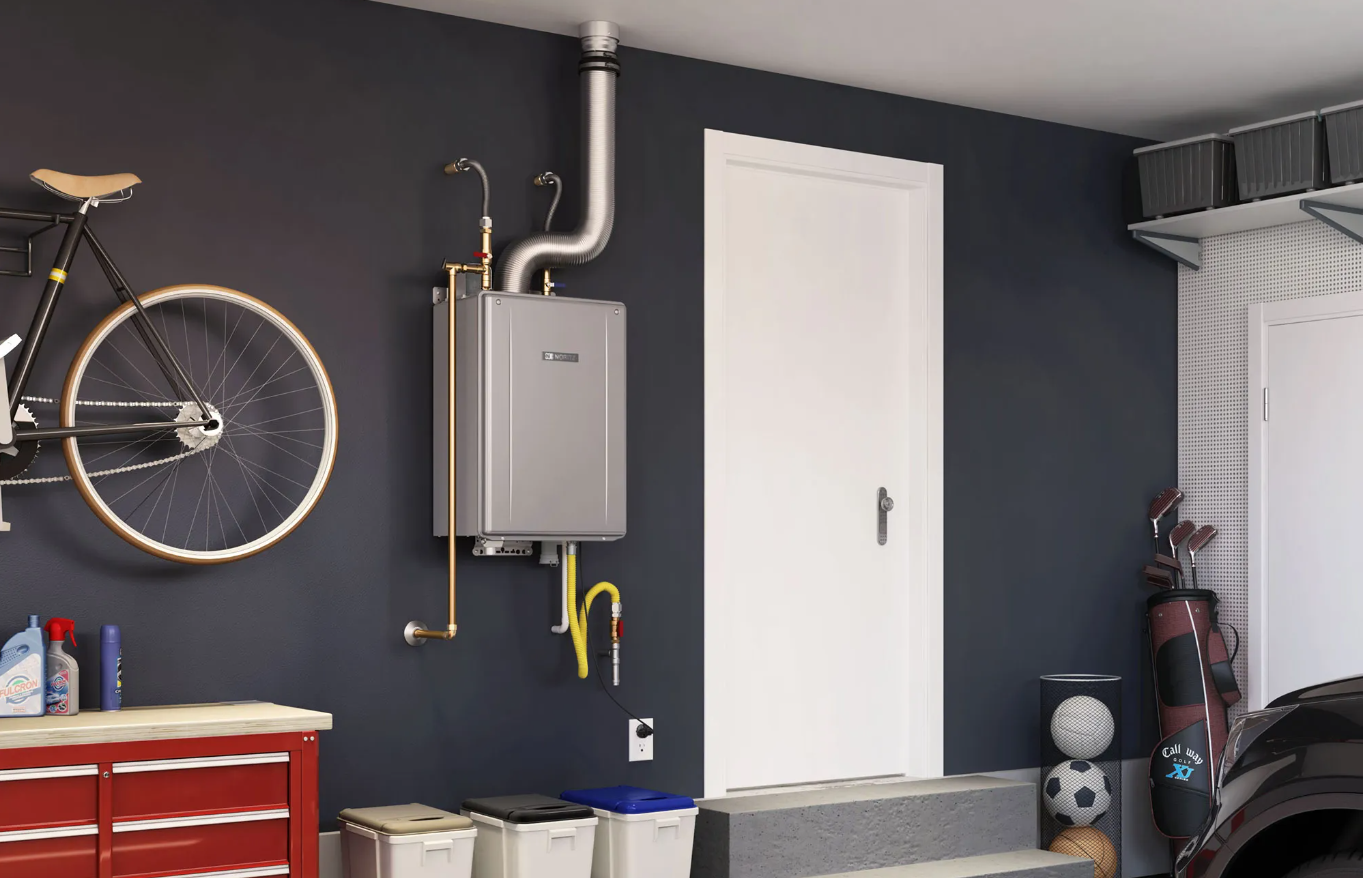
Q: Our old water heater is nearing the end of its life and seems to be leaking. We’re thinking about replacing it with a smaller tankless system, but the price tag is higher. Is it worth it?
A: You can tell it’s time to replace an older tank-based system if you’ve been running out of hot water during showers or have to wait forever to even get hot water. It’s not unheard of to experience leaking pipes and fixtures, poor water quality and mechanical issues toward the end of a tank’s life. Generally, tank-based water-heating systems should be replaced every 10–12 years.
If you find that you’re in the market for a new water heater, it might be time to go tankless. It may cost more upfront, but it will save you money in the long run. And there are other benefits to tankless water-heating systems, as well.
They perform better. Tankless heaters outperform tank-based systems in almost every way. A standard water heater that uses natural gas runs at 6%0–65% efficiency. That’s considerably less efficient than non-condensing tankless water heaters, which run at 85%–90%, or condensing tankless models, which run at 92%–96% efficiency.
Tankless systems don’t heat as much water, but the water will stay hot as long as you need it. With a traditional water heater, a household of three can take three 7- to 10-minute showers before the water goes cold. With a tankless water heater, they can take whatever length they’d like, and no one will get left in the cold.
One of the best features of tankless units is modulating heating that increases or decreases based on demand. Most have multiple burners that will ramp up the heat as needed. For example, a bathroom faucet running by itself only needs to use one burner, while a shower and washing machine running concurrently will use three or four.
They save space. Not only do tankless systems offer hot water quickly and efficiently, but their smaller size means they can be installed on a wall. Tank-based systems are bulky and have to be installed on the floor. If you live in a smaller home, especially a townhome or condo, tankless systems are highly recommended.
They save money and energy. If you’re interested in reducing your environmental impact, going tankless is a no-brainer. Tankless systems require less energy, resulting in lower utility bills. They also pollute less and require fewer metal and plastic materials to manufacture.
Tankless heaters do have some downsides, such as requiring more complex maintenance and repairs than tank-based systems. But they come with 12-year warranties — double the standard six-year warranty for tank-based systems — which reduces long-term costs as the system ages.
If you’re unsure if you’re ready for a new water heater or if a tankless system is right for your home, contact a certified plumber to assess your current setup. They’ll be able to make a site visit, offer recommendations and install whichever system you decide to purchase.
Mike Morris is a certified residential plumber with South West Plumbing, a member of the Master Builders Association of King and Snohomish Counties (MBAKS). If you have a home improvement, remodeling or residential homebuilding question you’d like answered by one of MBAKS’s more than 2,600 members, write to homework@mbaks.com.